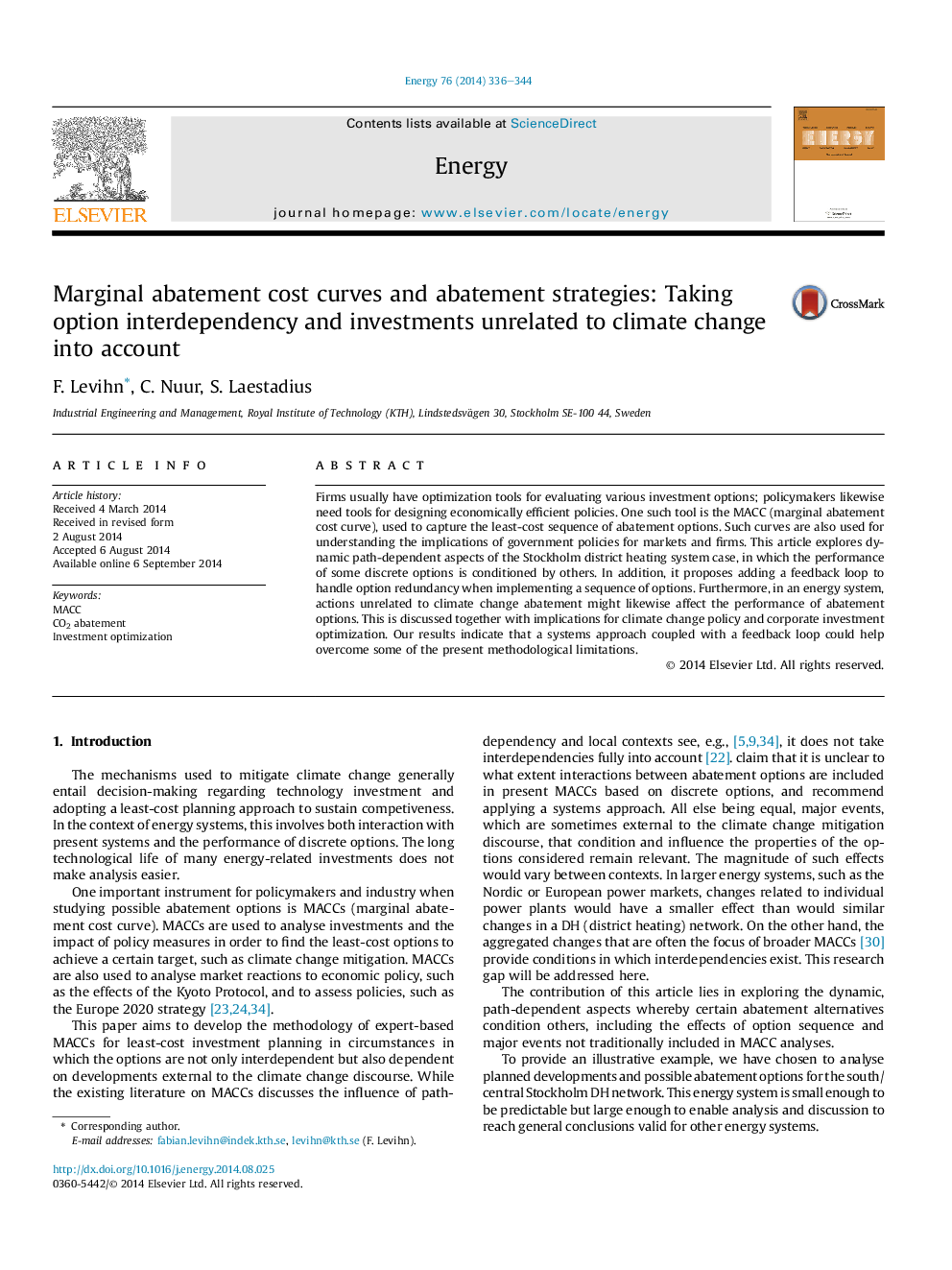| Article ID | Journal | Published Year | Pages | File Type |
|---|---|---|---|---|
| 8076689 | Energy | 2014 | 9 Pages |
Abstract
Firms usually have optimization tools for evaluating various investment options; policymakers likewise need tools for designing economically efficient policies. One such tool is the MACC (marginal abatement cost curve), used to capture the least-cost sequence of abatement options. Such curves are also used for understanding the implications of government policies for markets and firms. This article explores dynamic path-dependent aspects of the Stockholm district heating system case, in which the performance of some discrete options is conditioned by others. In addition, it proposes adding a feedback loop to handle option redundancy when implementing a sequence of options. Furthermore, in an energy system, actions unrelated to climate change abatement might likewise affect the performance of abatement options. This is discussed together with implications for climate change policy and corporate investment optimization. Our results indicate that a systems approach coupled with a feedback loop could help overcome some of the present methodological limitations.
Related Topics
Physical Sciences and Engineering
Energy
Energy (General)
Authors
F. Levihn, C. Nuur, S. Laestadius,
